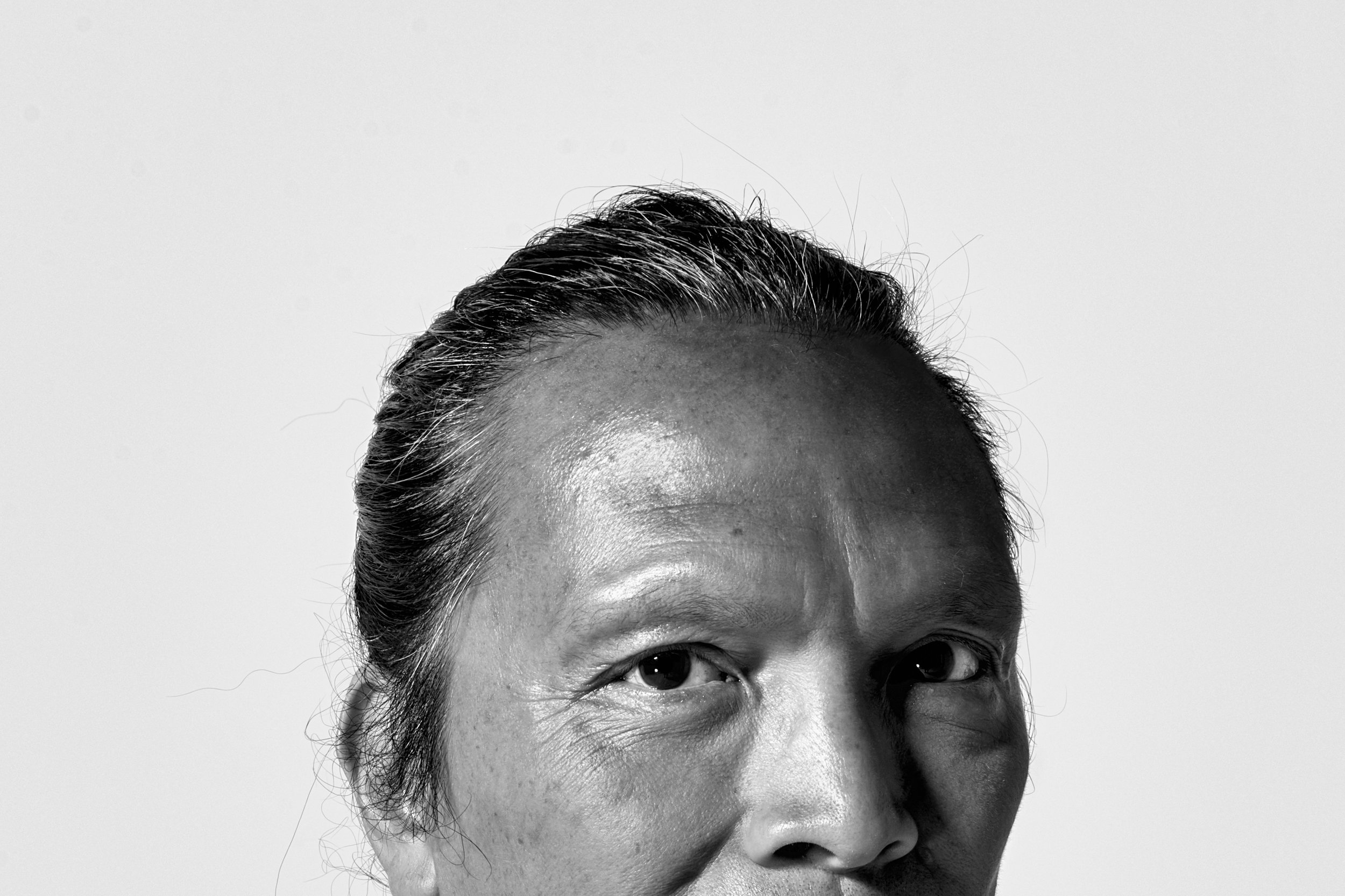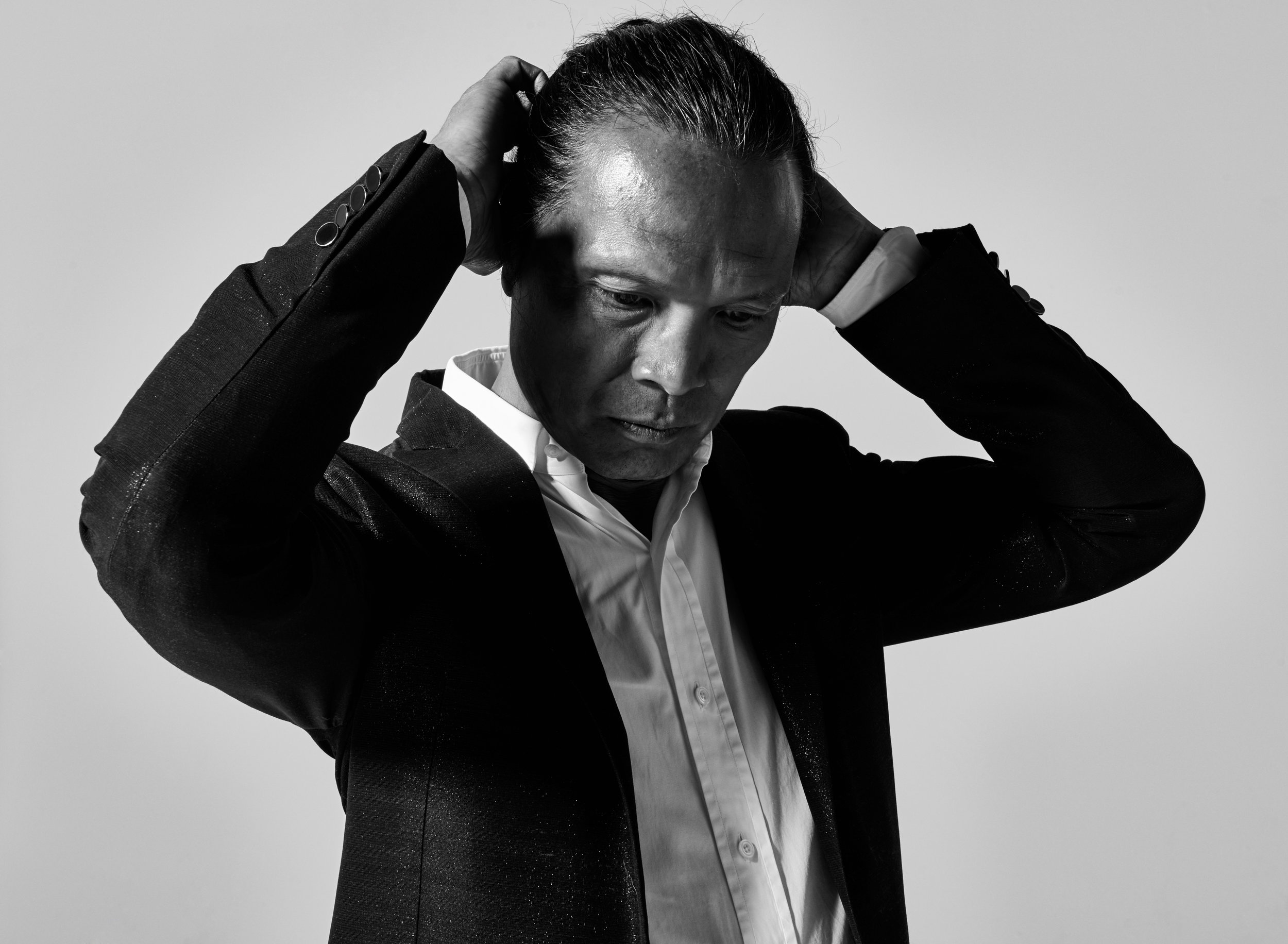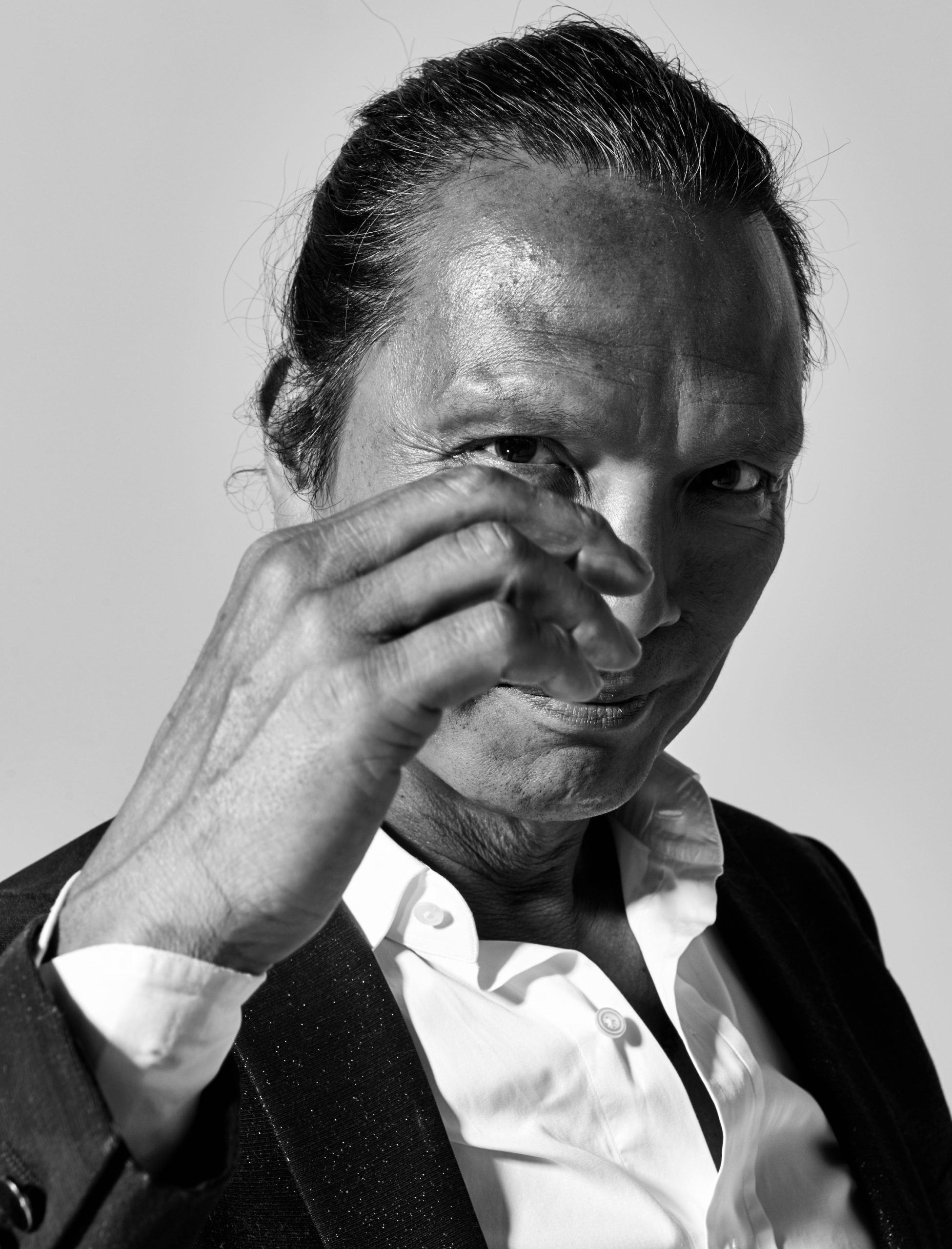Direction and interview: Lance Chung
Photographer: Janick Laurent
Hair & make-up: Demi Valentine
An immigrant of Chinese descent, Susur Lee has established himself as one of our nation’s most important culinary figures. Between his growing empire of critically-acclaimed restaurants and regular stints on TV, he’s certainly kept himself busy. But before he was ‘Susur’, Susur Lee was part of a movement of chefs and restaurateurs who dared to push boundaries and challenge the status quo, helping shape much of the robust and diverse food culture that you see in Canada today. More recently, his two sons, Levi, 26, and Kai, 24, have joined his side as lieutenants in the growing family business, helping to usher in a new crowd of tech-savvy, connected diners with a never-ending appetite for great food and, more importantly, engaging experiences.
Together, the father-sons trio talk about their fondest food memories, why diversity is our biggest strength and the challenges (and rewards) of working with your family.
HUMBLE BEGINNINGS


You are the youngest of six siblings that immigrated to Canada. What was your upbringing around food like?
Susur Lee (SL): Where I used to grow up, it was a working class neighbourhood; a lot of what you call “street food.” In my parent’s house — it was government housing — every time you opened the window, you would smell food frying on the wok. Those are my favourite things because my mother never fired anything at home. She always liked healthy food. Everything was steamed or boiled, that’s it. I never really wanted to be a chef. It was just that my sense of smell had the strongest impact. That was really my first food memory. The second was going to school. My mom gave me some change because sometimes she didn’t have time to make breakfast. She would say, “Go and get yourself some steamed buns. Get some soy milk or something.” That’s a Chinese breakfast. So, on the way I would be excited because I could pick my own thing. Those buns are like a Northern-style pork bun. You steam them and then you pan-fry them in this huge iron wok. Every time the juice just squirts out and it’s so hot. That was my excitement; going to school with the little change my parents gave me and having a choice to buy food at school and coming home, buying chicken claws with mustard and sweet sauce. Those are the things I love, seeing a guy with a little wagon and all the braised beef innards on a skewer that he’s cutting with a pair of scissors. Boiling, bubbling; I loved just following the smells.
Do those dishes still resonate with you today?
SL: Very much so. At Lee for example, my braised meat still has those spices. I’m imitating what the Chinese are using. I learned my cooking professionally, so I’ve refined my favourite childhood recipes.
How did immigrating to Canada shape your culinary perspective?
SL: I was already a trained chef. Hong Kong is like New York on steroids — lots of business, lots of travellers, lots of Europeans. Anything that had to do with the West was there in Hong Kong. I was exposed to a lot of different food, from avocado with crab meat salad and fresh dressing, to Italian, to Middle Eastern food. When I first came to Toronto, I started working in this hotel. The chef was showing me around the kitchen. There was a steak and potato on the right, and vegetables on the left. He was really not progressive at all. I could do this, it was easy. But, one thing that was really amazing to me when I looked around the kitchen was the multiculturalism. This one guy, he was from Barbados, a big guy with gold teeth in his mouth, stirring a big pot of squash soup with ginger. I recognized that there were so many different types of people. I worked with Swiss guys, guys from Singapore, Greece and more. Those were really old school, hard-working immigrants. They talked about politics, food and how they grew up. I even worked with a very hard-working Korean guy. He put his hand in the deep fryer with hot oil to pick up food once.
Did meeting these different people influence your work ethic at all?
SL: The word is “inspirational.” When you see someone older than you, you think if he’s his age and he can do this, and I am that young, than I can do it, too. If you don’t see, you don’t know. Wisdom is about knowing people. I think that always got me inspired. For my kids, I don’t have to tell them I’m hard working, I just do.
What do you think defines Canadian cuisine?
SL: To really identify Canadian food, it’s really about what the land offers. Because we live in Toronto, we have everything shipped in. Canadian food is migration, the longevity of time. The food is really still multicultural at the end, but Canadian food is sourcing from the ocean, pond, land. Look at Ontario, we have amazing berries, amazing vegetables. If you look at B.C. you have amazing seafood. If you look at Nova Scotia, you have a lot of lobsters. Identifying Canadian food in the city and outside of the city are totally different things. When I was in Newfoundland, I found that people really talk proudly about what they grow as Canadian, no matter where they come from. It’s how to survive there. So, I think Canadian [cuisine] is part migration and survival. In the city, the young generations are bringing all the new things, great ideas from their heritage and putting a new spin on it. Canadians are one of the most open-minded when it comes to food. When you ask people, “Where would you like to go and have dinner?” They never respond with “Canadian food.” The mindset is really flexible. Canadian cuisine is very flexible.
PASSING THE TORCH






How have failure and success helped you build your business?
SL: It’s all about consistency. You have to love your business. The love gives you experience. When you give time, you put clay on it and then you get experience. And then the experience, it becomes very good. You have to know what you want to put out that’s passionate. When you have great ideas, you want to separate yourself. You have to make sure yours is better than theirs, and that there is no comparison. You have to be driven by what you really believe in. There is no other kind of distraction. It has to be very pure. It’s a blinder but when you go over the hump, you can actually see. I always say when you are up, just stay up there and be consistent.
What has the experience of succession planning been like? How have you groomed your sons to take on the business?
SL: Well, I don’t really groom them. I just want to share experiences. What I do, I share with them and it works. It’s like show and tell. Sometimes people have different ideas. Sometimes I would do something and Kai or Levi would say that they have a better idea. And that’s fine. But, in terms of learning how to work with each other, it’s always family first. It doesn’t matter when it comes to how mad you can be at work, if they screw up or I screw up, I don’t care. Family is number one.
What kind of expectations do you have?
SL: I [tell them], “Guys this is going to be your life.” It’s takes a long time to know everything in a restaurant business. There are so many different levels of knowing people and managing people. Those are the things that are more important to teach them. Those who labour are the most important people in the restaurant business. You have to be nice. Nobody wants that trade anymore, nobody wants to do that kind of work. Running a restaurant, you have to understand the element of people. People want to do things for you when they are happy to do it, or want to learn something for you.
THE DYNAMIC DUO


What were some of the things that you learned from observing and being in a restaurant environment?
Levi Bent-Lee (LBL): Growing up we didn’t really get to see my dad in the kitchen as much because he was working all the time. Kai and I were tennis players growing up so that was pretty much our life. We didn’t really enter the whole restaurant scene until midway through university. That’s when we really started to see it. Every once in awhile when we were younger we would go and visit the restaurant and we would see him working in the kitchen, but for the most part we didn’t really get to see him at all.
Kai Bent-Lee (KBL): I think without seeing him in the kitchen, we understood how hard of a job it was to run a restaurant of that caliber. When we were growing up he was running Susur, which was high-end tasting menus. Everything had to be perfect because people were paying top dollar for something and expected perfection. And he also strived for that too. I guess we understood how much hard work goes into it and the crazy hours. We would remember he would come home super late when we’d be sleeping already or sometimes we’d wake up and hear him come home. Or we wouldn’t even see him in the morning because he was already at work.
What are some of your fondest memories around food?
KBL: Something that we still do and that we’ve done since we’ve been young is we’ll travel with the main purpose of trying different things really focused around food. If we’re going out on serious eating trips we’ll do three lunches and three dinners every day. To the point where you’re not eating for enjoyment, but it’s more an educational thing. It’s to get ideas and see what people are doing. At the end of the day, it’s still a nice experience.
LBL: Travelling, for sure. It’s funny, I was just saying to my dad the other day about how badly I want to go back to Asia because we used to make it a habit to try and go at least once a year just to eat and travel. That was the best part about growing up, getting my dad to take me to all these crazy markets and restaurants in different parts of Asia.
What kind of expectations and pressure do you set on yourselves?
LBL: I don’t really feel much pressure to be honest. [I’m excited about] growing the business. We’ve always been Toronto-based and my brother and I’s goal is to expand outside of Toronto. I love it the city, I just think it would be exciting for us to take it somewhere else. We know we have a good product. Kai and I have wanted to open a restaurant in LA for some time. That’s where we would like to work next; it’s just a matter of finding the right people to work with, the right space and at the right time. We don’t want to force or rush it. It has to be natural and organic.
Speaking of business, can you talk a little more about your dynamic with Drake?
KBL: We went to the same high school as he did but he had just left when we got there. We went to a high school that specialized in kids with outside commitments. So, ours was tennis and his was acting. There were a lot of actors from Degrassi there. So he was Drake from Degrassi at the time. We ended up doing his 26th birthday [at Bent] and by that time he was a megastar. I had gone to a restaurant a lot called Sotto Sotto and one of his friends, Angelo, was a server there. He reached out to me and asked [if he could] throw his birthday at the restaurant. We made it happen. That’s how we first met and from there we just started hanging out. He became a regular at the restaurant and it kind of became a friendship from there. Obviously, he’s a big foodie. Angelo, who’s one of our friends and partners, is a big foodie, and we are too. So we would go out for dinners every night. We would be in London eating at Michelin-star restaurants, but also hole-in-the-walls and cocktail bars. It kind of felt like there was something missing in Toronto for us. We don’t really go out to clubs. What we like to do is just eat dinner at a restaurant and then hang out and get a couple drinks after and be there all night. That’s how we started talking about doing something together. He always wanted a place where he could host; he’s a natural host when someone comes to Toronto. He wanted somewhere to host his guests. That’s how our relationship started and how it morphed into a business relationship.
A FAMILY AFFAIR


Where do you think dining culture is going?
KBL: If you look at the big picture of dining culture since I was young, I think it went from high-end to really casual to snack bar and cocktails. As a quick answer, I think it is going back to high-end — longer seating times and a little bit more extravagant. My generation, and I really think it has something to do with social media, they like posting pictures of extravagant shit that catches your eye. The dining scene is going that way.
SL: I think the word is “pampered.” They are used to casual meals where they just go and grab their food. Now you expect more and need to be pampered. They want it to be fancy so they can share the things with their friends and say, “Oh I have been to this and I have done that.” I call it the ‘nosey culture,’ that’s what it is.
What are the challenges working as a family business?
LBL: It was harder when we just had Lee because all three of us would be there all the time, so then obviously we would clash heads a lot more. We don’t always have the same vision but now that we have so many different things going on, we’re not necessarily all in the same place at the same time, so it makes it a little easier. We also just trust each other, our opinions and the decisions that we make when we’re not around. The hardest part in the beginning was for sure arguing with the family.
KBL: You argue differently with family than you would with a colleague or a business partner. At home, we definitely end up talking about the business a lot but it’s something we are all passionate about so it’s not an issue to us, it’s something we enjoy talking about.
SL: It’s not difficult. For me the most important thing is the failure of a restaurant family business. If one of the members starts drinking or not caring about the business, or does drugs and the passion is not there, that’s the worst for the restaurant business. It takes a lot to run a restaurant. It’s one of the hardest things. I know when I come in and I know when to come out. The bottom line is family first.










